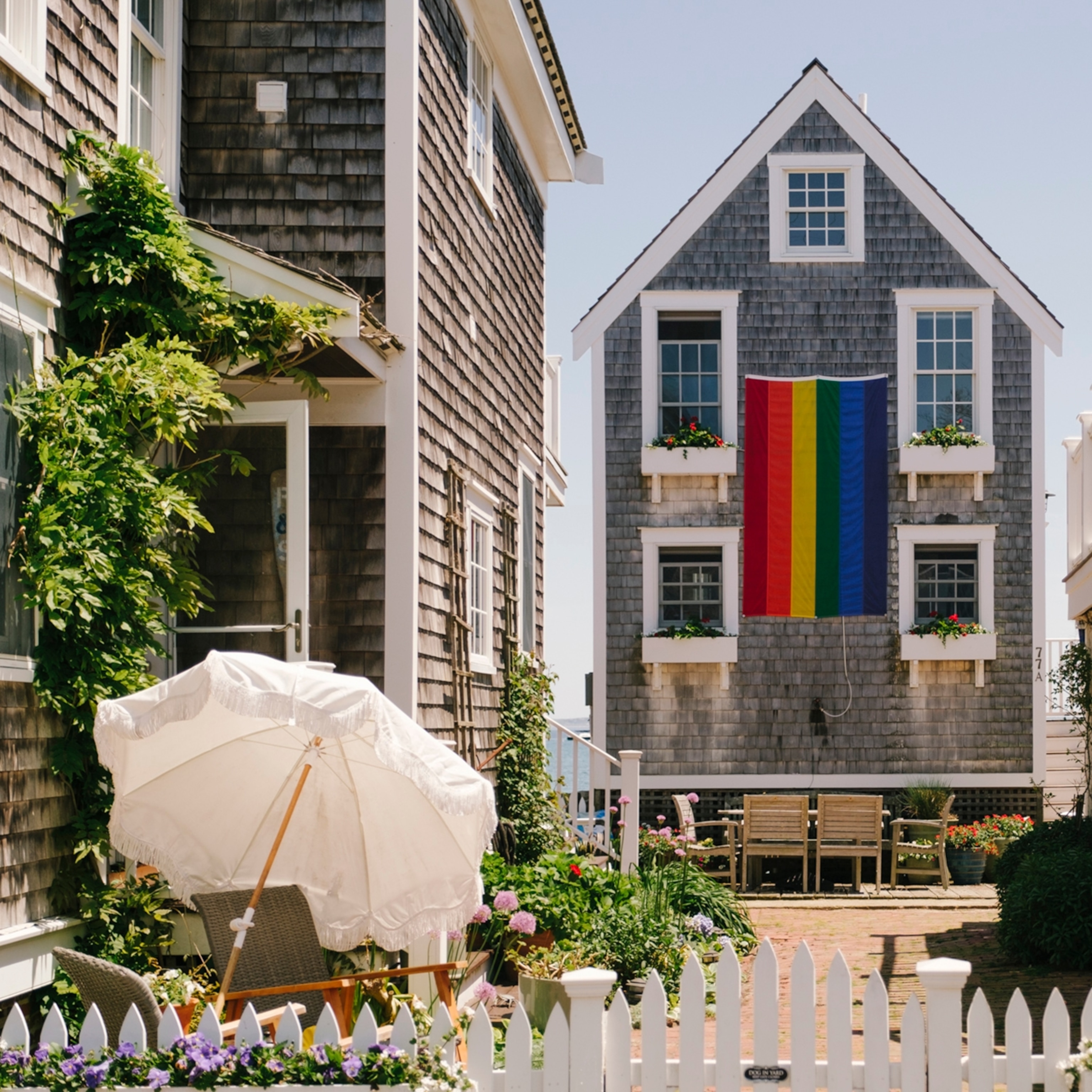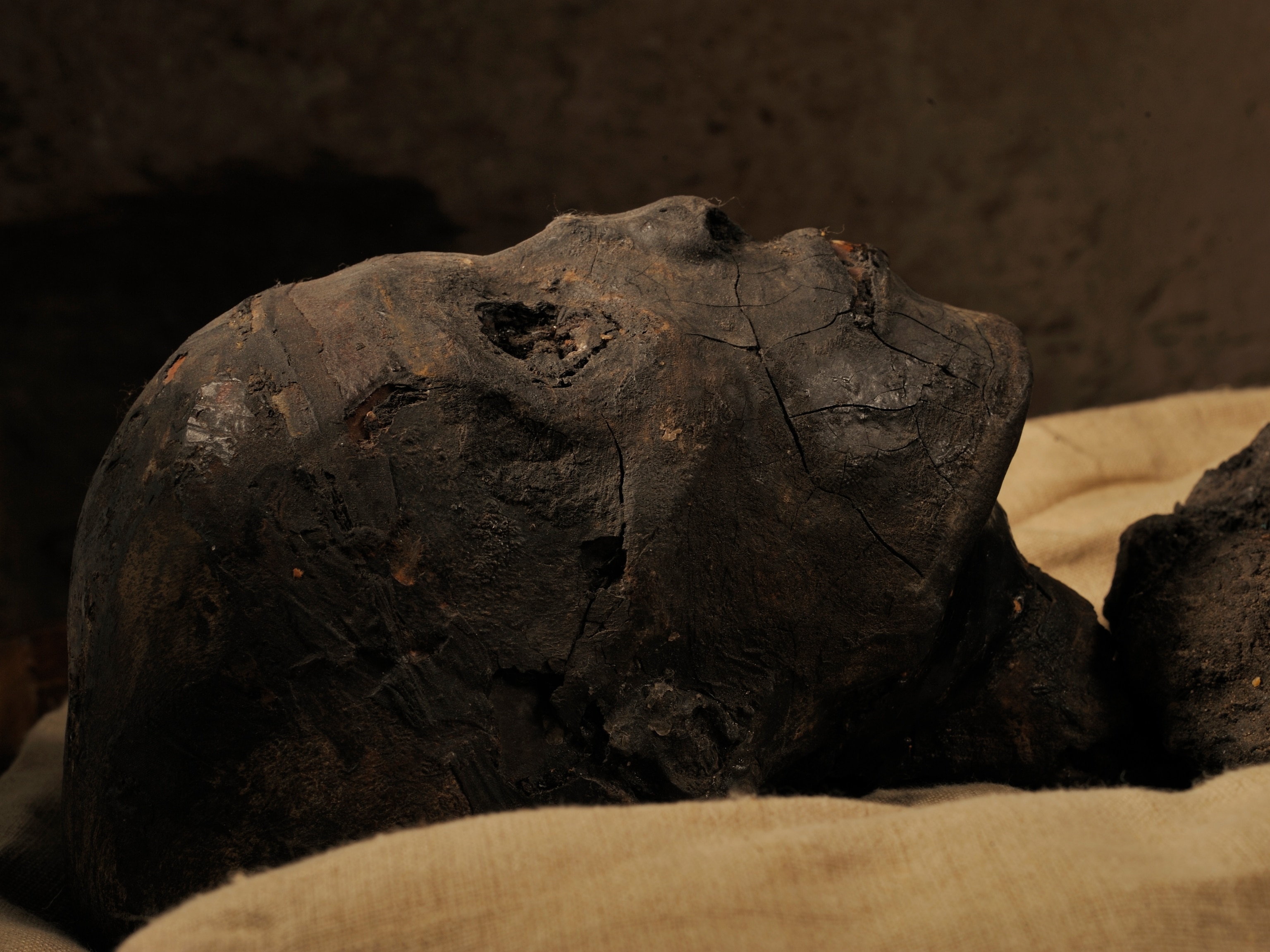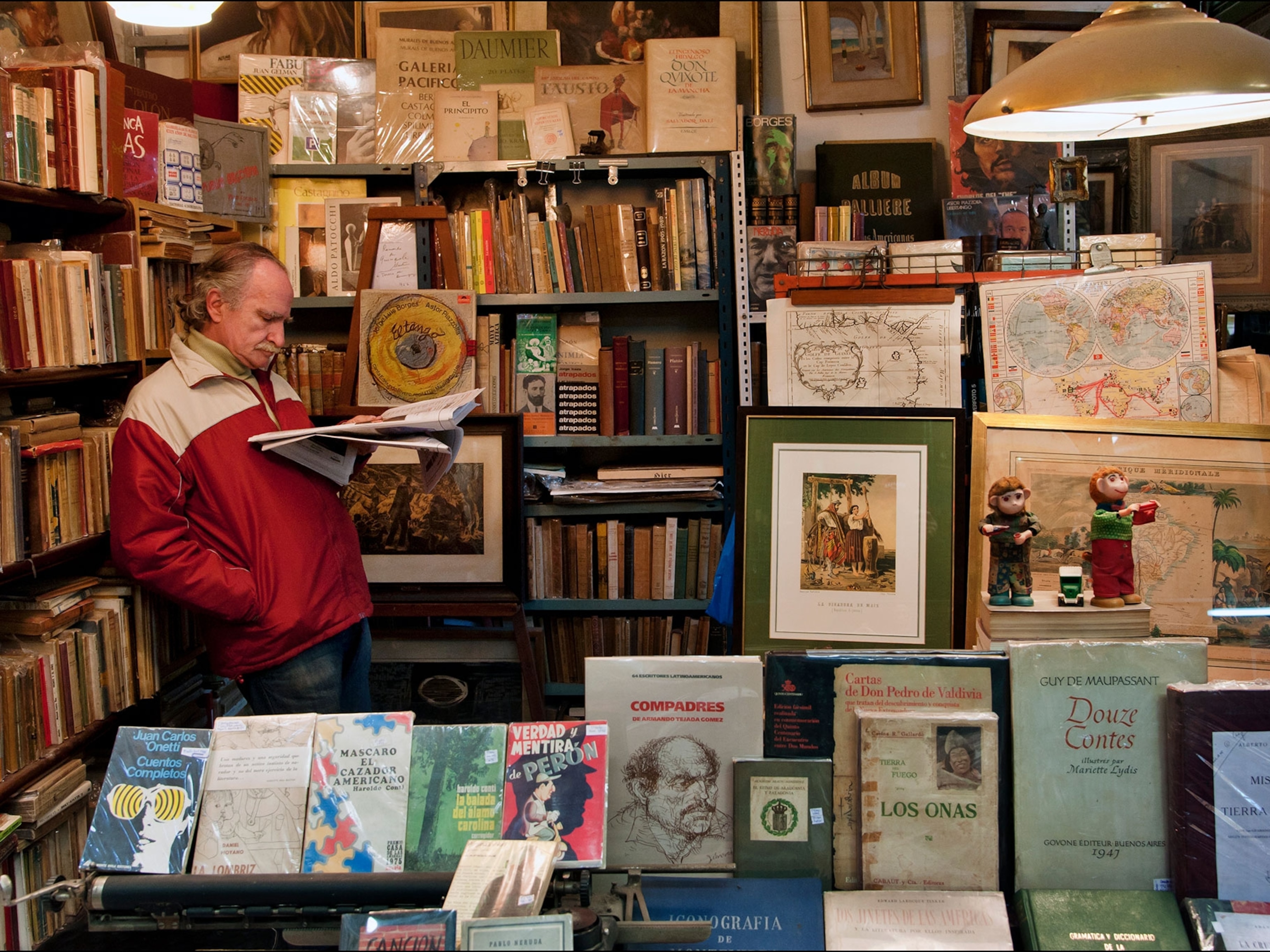
Breaking Free: One Woman's Journey From Marriage to Independence
It's taboo for a woman to write about her private life, says author Alexandra Fuller.
When 22-year-old Alexandra (Bo) Fuller met her husband, Charlie Ross, in Zambia, he seemed the perfect partner: good-looking, adventurous but grounded, all-American. Swept off her feet, she followed him to a new life in Wyoming. They had children. And horses. A car each. A weekend cabin.
From the outside, they seemed like the dream couple. Under the surface, though, the deep differences in their backgrounds began to corrode the relationship. As 2008 unfolded, Charlie's real estate business collapsed—and with it a credit-fueled lifestyle. The financial lies they were living also exposed emotional lies. They began to extricate themselves from the partnership.
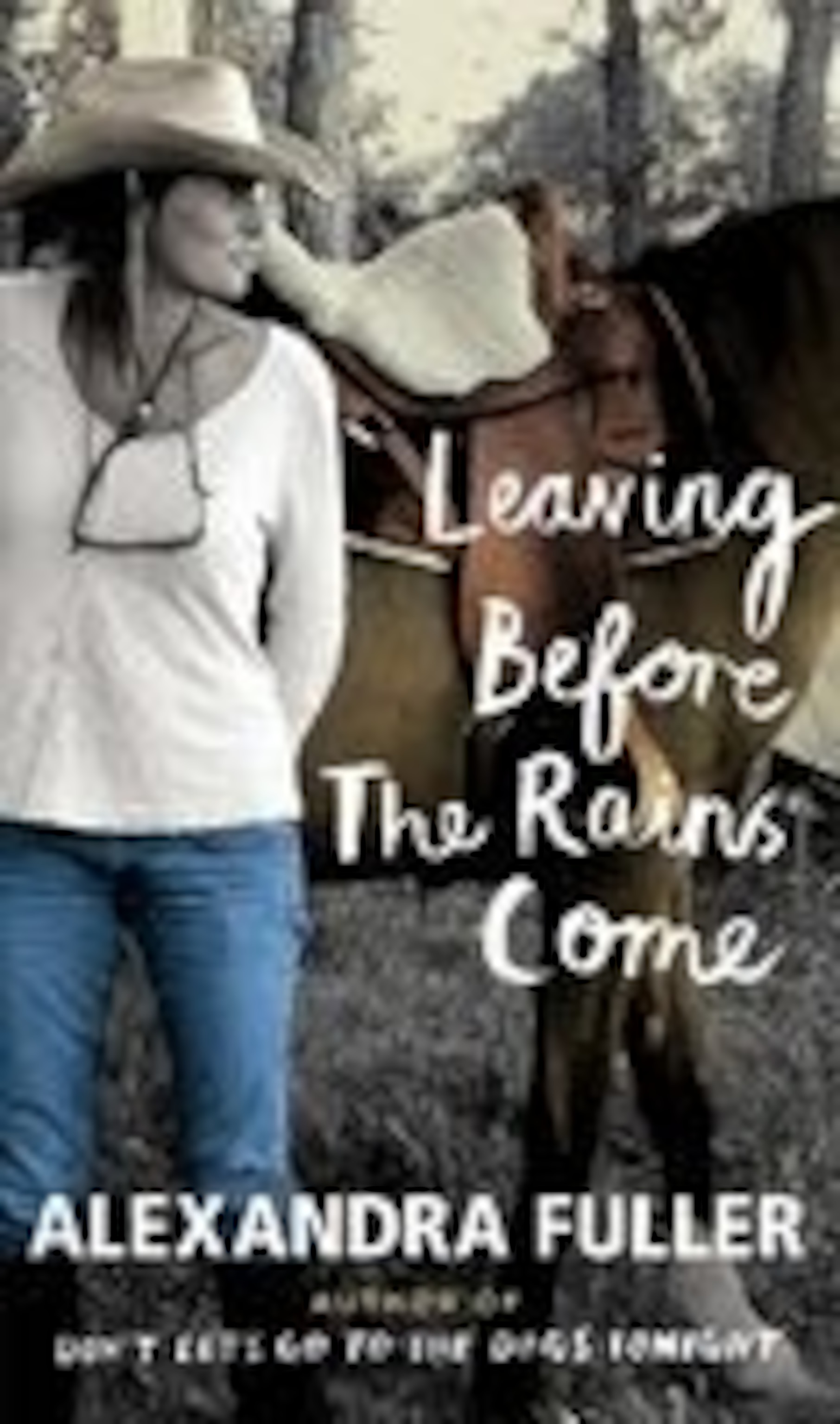
In Leaving Before the Rains Come, Fuller puts her failed marriage under the microscope. The result is a searingly honest account of what many women feel but few dare express. Talking from her home in Wyoming, Fuller describes how her childhood was shaped by the twin poles of the Rhodesian civil war and the operatic chaos of her parents' lives, why women are so reluctant to write about their private lives, and how the financial crisis of 2008 swept away the illusions she and her husband had built their marriage on.
This must have been a painful book to write. What drove you?
Most writers have a story they can't stop telling. For me, it's this idea of what it is to belong to a place. What happens when you are shaped, as completely as I was, by a land to which you now don't belong. Being a white southern African, who saw the transition from Rhodesia to Zimbabwe, the sense of being an outsider was absolutely instilled in my limbic system.
Everything I write, whether it's for a magazine assignment or a book, is also about how institutionalized violence leaks into the home. I'm thinking particularly of apartheid, or the results of genocide on the Pine Ridge Indian Reservation.
And when I looked at my own marriage, which ended up being a life-and-death scenario, both literally and metaphorically, I found there was no good writing about it. Being a writer but also having been raised the way I was, I tend to turn to books for answers. But there were none.
I don't just mean books about divorce but about the ways in which we bring our pathology forward into our relationships and hope that the relationship will fix it. Or we allow ourselves to behave in unfulfilled and broken ways rather than in conscious celebration. Marriage is the trickiest and most basic contract that we have.
There's also a lot of dishonesty and a mild kind of violence, even in calm-seeming relationships. We tend to put each other in a straitjacket so that we don't have to grow. The most basic human impulse is toward entropy and laziness. The less we have to do to grow spiritually, the more likely we are to do it. We'll undergo agonizingly boring, unstimulating relationships in order not to grow. And we'll expect that of our neighbors and friends. Doing the stimulating, hard, courageous work of love requires a lot of a marriage.
This is the story of two young people falling in love then discovering they have drastically different characters. Give us a psychological profile of the combatants.
I was coming out of an exuberant, war-torn childhood, with eccentric, careless, passionate parents whose weather system was drama. We dealt very well and coherently with drama in our family—and also in our culture. But we're a bit at a loss when things are quiet. The man I fell in love with, I fell in love with because of his seeming calm. He came from the United States, the leader of the world. "If anything goes wrong, don't worry—they'll send in the troops." [Laughs] It seemed as if he was coming out of a place of certainty and safety. Yet what he did for his living at that time was adventure.
So from my perspective, I was marrying a safe idea of adventure. I wasn't prepared to give up the beauty and wonder of being southern African for a sort of dreariness. But I was, frankly, exhausted from the traumas of war and the nonstop incidents and accidents where I was raised. I appealed to Charlie's sense of adventure, and he appealed to my need for calm. And we were both wildly mistaken.
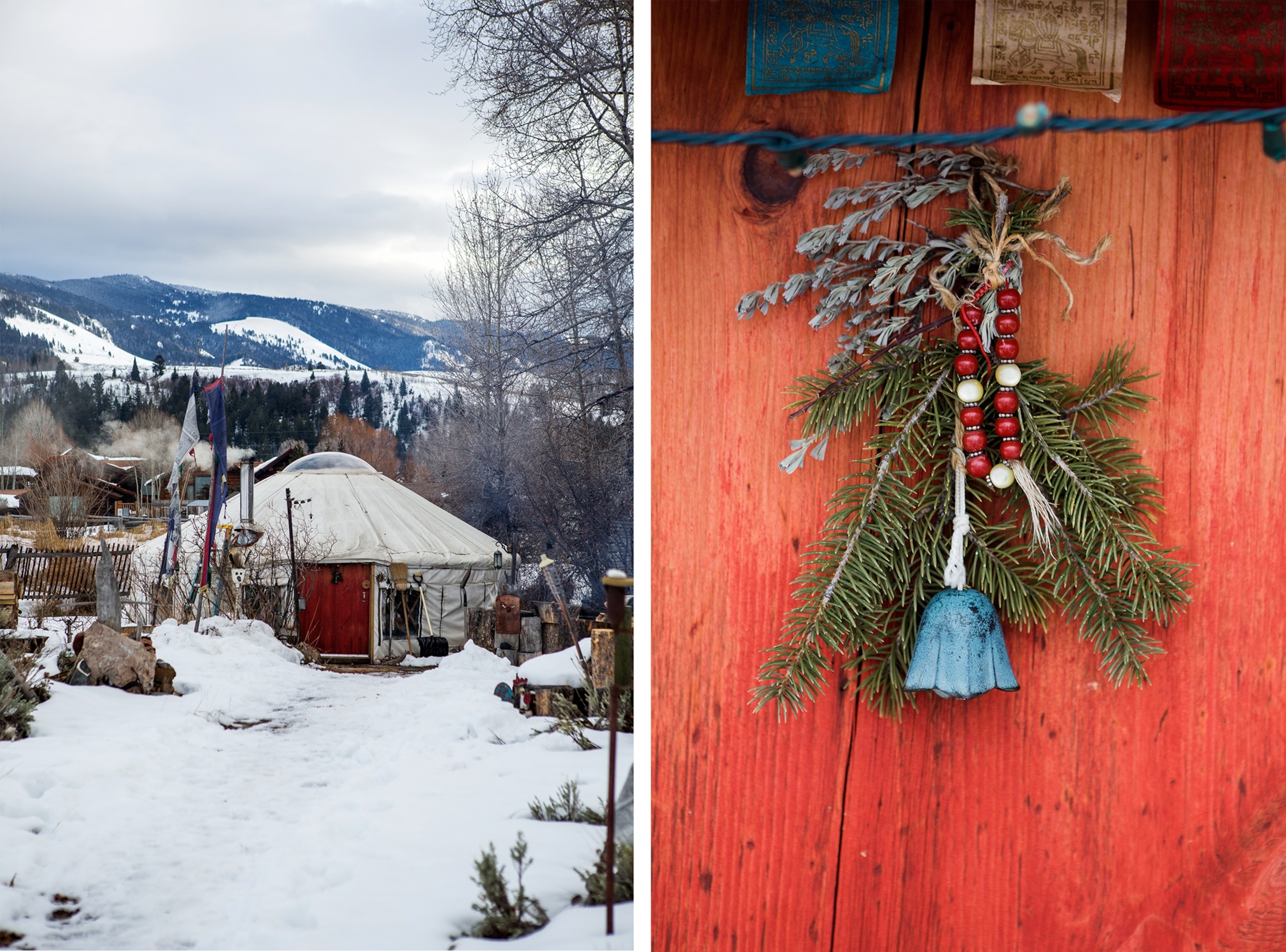
You write, "My parents considered pandemonium as an important ingredient of everyday life." Give us a glimpse of the chaos.
The example I give in the book is phoning home and Mum saying that the excitement this week was a party with some friends who are Eastern Europeans, with too many consonants in their name and scary quantities of vodka and fake caviar, and Dad getting, as my parents would euphemistically say, "overexcited," and refusing to get in the car when it was time to leave. So my mother drove off with him on the roof! [Laughs]
These people are my parents and grandparents nine times over, and they're behaving in this hilariously exuberant way. My mother is an infamously bad driver. So there she is roaring around the streets of Lusaka at heaven knows what time of night, with my father on the roof of the car, banging away because she's driving on the wrong side of the road! Mum is shrieking with laughter. She can hardly tell the story. "I just thought your father was singing the 'Hallelujah Chorus' or doing Tchaikovsky's cannons." [Laughs].
You say you "worshipped" your father. Do you think your adoration of your father complicated your marriage?
My father's been described as the John Wayne of Zambia, which gives the real John Wayne a run for his money. He's so stoic, he's so wise, he's so surprising. He's absolutely infamous for his extravagances. Anyone else would seem small by comparison. Of course, I wasn't trying to make a life with my father. That would be cringe-worthy. But when you've been raised by someone like that, you have an expectation that the man you're with can match that.
There's a wonderful description of your family's mealtime rituals in Zimbabwe. Set a place for us at the table.
My father was very insistent that we come to dinner, to the captain's table, properly dressed, which in reality just meant we could not be grimy. We had to be bathed and at least not in ragged clothes. My father was raised in a naval family. I use the metaphor of the navy and ships and the language of signal flags throughout the books. Your job is to entertain each other: That was really the demand of my father.
From my mother, I learned the alchemy of storytelling. Watching her tell my father stories, turning the grist of her day into these bright, golden threads, was really instructive about how to tell the story. And this wonderful idea, which was deep in my father, that as long as you showed up, present and correct for dinner, stiff upper lip and straightened spine, and knew how to behave just badly enough to be entertaining but not so badly you courted disgrace, then he had done his job. It was a wonderful lesson to get when we were young. The only crime in our family was to be boring.
The book also takes the reader back to the Rhodesian civil war. How much did that conflict affect your childhood?
People have rehashed it as a war against communism. But this was a war about race. There were at most a hundred thousand white people who had access to the votes, the schools, the hospitals, and most importantly, the land. Then you had about six million black Zimbabweans, who were in Tribal Trust Lands in these small, not very fertile, communal areas. Their access to the vote was severely limited. They had bad schools and bad hospitals. One of the things that was essential learning from my childhood was that being white made you intrinsically superior, and it was OK to lord it over six million blacks.
But the biggest effect was that war was the weather system of my youth. The war was everywhere. And what came with that was death and the insanity of war, which leaks on even after a cease-fire has been declared. I think the hardest thing it did was to make childhood innocence, those precious years until you're about 11 or 12, not exist for us. War makes you cunning and a survivor. It can make you very damaged or very resilient. But it never leaves you.
You spend the rest of your life trying to redress what happened to you in those first years, even though it's not your fault. But your body doesn't know that, your limbic system doesn't know that. You're always waiting for the next trauma to happen—or drama. You're constantly on watch. My sister, Vanessa, lost the ability to be around instability. She had used up all her resources in that department. And we both looked for men to marry who would protect us against dangers that actually didn't exist anymore.

How do you feel when you read about Robert Mugabe's Zimbabwe today?
I went back to Zimbabwe for a National Geographic piece a couple of years ago, and I think it's very obvious that you cannot have a calm, productive, democratic future when the foundation is violence and inequality and war. And I think that the half-life of the Rhodesian war is proving horribly long.
Robert Mugabe is a product of that war. I know this is an unpopular thing to say—people want to separate out Mugabe as a distinct piece of evil that sprung up out of nowhere. But there's no way he would have been able to carry on as long as he has if he couldn't get so many people to act as if the war happened yesterday. When you go to Zimbabwe, the rhetoric and the behavior of Mugabe and his cronies make it seem as if the Rhodesian war was still going on.
What's astonishing to me is that there have always been women primarily, but also men, who put their necks on the line to stand up for a robust kind of truth, and a robust kind of justice, which acknowledges where we came from. For me the definition of grace is to be prepared for where you're going. The future. Your children.
You and your husband were also victims of the financial crash. Talk about that.
I think victims is a strong word. We were really perpetrators in the crash. The kind of greed where for very little work you could make a lot of money. It was called cheap money. But that didn't make sense to me. Those words shouldn't be in a sentence together. My very African instinct was that you don't have credit. My parents can't get credit in Zambia. It doesn't exist in that way. It certainly didn't exist in my family.
So to be in a culture where there's cheap money that allows you to borrow against a kind of financial bubble felt to me, even at the time, so confusing I couldn't understand it. I'd also married right out of college. I'd never even balanced a checkbook. Charlie would show me numbers, and they didn't make sense to me. I was financially completely illiterate. And that really put this huge strain on our marriage because, as a southern African, I didn't trust that. I felt emotionally and instinctively that we were doing the wrong thing. We were living beyond our means. We had a custom-built home and a car each and a getaway cabin, and all this land we'd bought as investments. We traveled a lot, and we weren't paying attention to the fact that it wasn't endless. But deep down, I kept thinking: This feels crazy.
You are now a successful, critically acclaimed author. But it wasn't always like that, was it?
[Laughs] No, I was one of the most rejected women in the country, it's sad to say. Not only was I rejected by every major publishing house in this country, I was even fired by my agent, who said, "You maybe have some teeny-weeny vestige of talent, but you don't have a story."
I wrote really dreadful novels, I think that's fair to say. But I wrote out of desperation. I'd been told relationships are "work." The basic message is this whole lie that what will make you happy is getting married. But once you get married, you're supposed to be miserable. [Laughs] I kept thinking: I can write my way out of this. Surely if I put this all on paper, I can somehow make it better. I can put words on the page, and the words will make sense of everything, and it'll be OK. I think a lot of writers will recognize that impulse. So I wrote and had toddlers and worked part-time and woke up at 4 a.m. to write. [Laughs] It was real Oliver Twist stuff.
How much did writing this book enable you to start a new life?
In terms of my health and ability to move on with clarity, this book has been a lifesaver. And I hope it is for others. Not just for women, although I think it's more common for women to end up in the situation I was in: financially illiterate, in a relationship where they think that their white knight showed up, but it turned out not to be true; where they pick their heads up out of the diaper pail and realize they absolutely cannot carry on. I look back at the last years of the marriage and say, Wow, that was the definition of insanity. I just kept doing the same thing over and over, thinking I could make the future different.
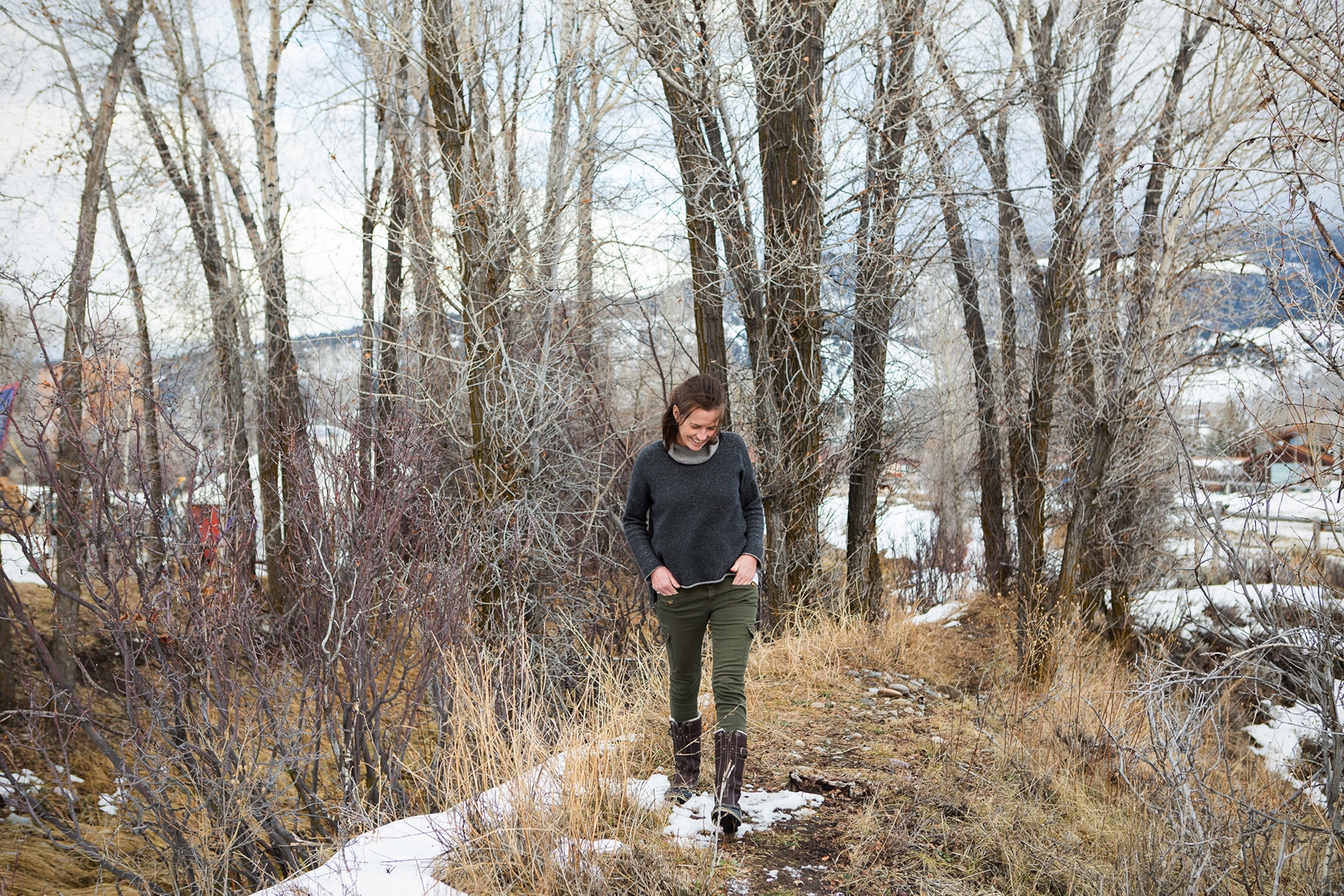
How have the characters you describe, particularly your ex-husband and your children, reacted to the book?
I'm not sure that my ex-husband has read it. Or that he ever will. I'm very grateful to him, actually. I have three children. I learned a lot in that relationship. I think this is traumatic for him, and for me there's a line about what I can say about him either in the book or aloud, because he should have his own privacy.
As a woman writer of memoir, your fear tends to be private. I'm not saying this is true of all women or of all men. But men tend to be in the public eye, and women tend to be in the private eye. And one of the most taboo things you can do is write about the private. Because that is mostly the domain of women, there's this awful silence at worst, or euphemism at best, around what happens in marriage.
The place I finally came to—and this is very new for me—is that it's not my job to care what people think of what I've written. I'm a memoirist. That's just a part of who I am. Nobody asked Ernest Hemingway what his wives thought about his books, even though he often used them as fodder. Same with David Sedaris. People don't challenge him on how his family feels about the work he does. People think: Oh, he's a man, he has a voice.
But they get riled up when a woman has the authority to say, I'm not asking permission, I'm just going to say the truth of what happened to me and how it is. It's important to me that ethically and morally I protect my children, so I didn't expose anything I thought was terribly private. But it's imperative that someone writes about these confines honestly. Because I certainly couldn't find that when I went to seek out literature about marriage.
The closest was Tolstoy. Some of his novellas and short stories deal with the suffocation of marriage. If he'd been a woman writing in 2014, he'd have been crucified. [Laughs] Women are supposed to soldier on and look great and do their jobs and raise their children, and be fabulous wives and sexy and funny and interesting and supportive. We're still in the last century in many ways. So I want to be an example for other women and daughters.
The relationship that survives is your love affair with Africa. What do you love about it?
The thing I absolutely loved about Zambia growing up was its trees. They were like an umbilical pull, back to something ancient. Now Zambia is being deforested at the second highest rate per capita in the world, second only to Indonesia. It's like watching your beloved have a hideous, unstoppable disease. That love for the wildness and freedom that I had, growing up, will never change. But the country itself is changing. It's very easy, and a mistake, to romanticize a place as it was in your childhood. It's not like that anymore.
Simon Worrall curates Book Talk. Follow him on Twitter or at simonworrallauthor.com.
